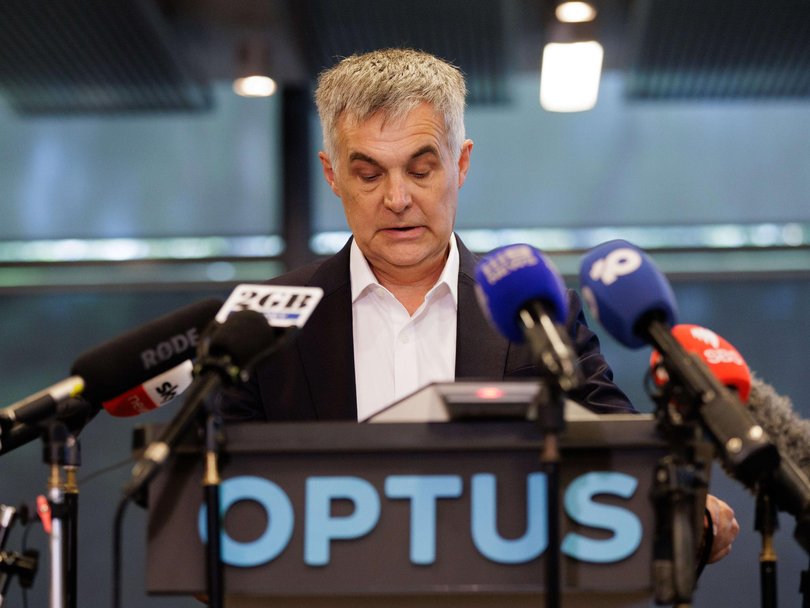‘Dysfunctional’: Optus needs regulatory overhaul after catastrophic triple-0 outage, expert says

Going after the Optus chief’s head is not the solution to the embattled telco’s failings, which go much deeper than the shortcomings of its executive branch, an expert warns.
On September 18, hundreds of Australians were unable to make triple-0 calls in a network disruption that turned catastrophic after a barrage of escalating failures.
They began when the number of affected customers reported to Communications Minister Anika Wells was 10 on the afternoon of September 18 before ballooning to 100 by 3pm on September 19, and then an hour later, to 600.
Sign up to The Nightly's newsletters.
Get the first look at the digital newspaper, curated daily stories and breaking headlines delivered to your inbox.
By continuing you agree to our Terms and Privacy Policy.A Senate inquiry held earlier this week revealed that Optus held several meetings, including with executive board members at parent company Singtel, in the 24 hours before it told the public its network failure had been linked to three deaths.

During the Monday hearing, government officials, including Greens senator Sarah Hanson-Young, called for Optus chief executive Stephen Rue to be fired along with those in the executive branch. Senator Hanson-Young demanded: “Who’s going to get the sack?”
However, the approach to solving the troubled telco’s compliance issues needs to be “system-wide”, aside from lasering in on the chief executive and the regulator, Melbourne University Law School professor Jeannie Paterson said.
“Rather than arguing about who’s the CEO or who’s the person at the top, we need to ask what the governance structures throughout the organisation look like,” she said.
Optus, which is subject to multiple investigations including by the communications watchdog, is being scrutinised for its failure to inform the government and the Australian Communications and Media Authority (ACMA) with updated information.
However, Optus maintains that it did not breach its regulatory obligations, which Professor Paterson said was reflective of the telco’s “rule-based approach mentality”.

“At the time, they did not have an obligation to do so, but given the significance of the situation, that there were 600 customers unable to get through to triple-0, that’s a point where someone who is senior should be going: ‘We need to talk to the government at this point in time. We need to have those communication channels open. We need to tell them what we’re doing’.
“That itself almost demonstrates the failure of governance, that there was no process for assessing the magnitude of that risk and providing a more effective response.”
There were no requirements for Optus to make its risk management processes more transparent for ACMA, given it was a private company, Professor Paterson said.
“Optus has shown repeated instances of failure to manage risk, and fines don’t seem to be working for it,” she said
“So I think that we need greater scrutiny and transparency … it should be providing information to the regulator about how it’s responding to and managing those various risks that have emerged in how it does business in Australia.”
ACMA has itself come under fire, including in the Senate inquiry, for not being “tough enough” in its regulatory demands of Optus.

But adding prescriptive rules to the way businesses should operate could also stifle them, Professor Paterson said, and might create parameters that were “not fit for purpose” as well as dampen innovation and “hold the market back”.
“However, particularly in this case, I would like to see clearer outcomes that the telcos are required to reach in terms of its performance in the areas we know are lacking,” she said.
As for whether Optus could lose its operating licence entirely, as has been floated by government officials, Professor Paterson noted that the telco was not “too big to fail”, but removing it from the market would restrict the “kind of competition we want”.
“I think it’s more a case of really asking Optus to perform at the level we expect in Australia and actually work out its internal governance processes, which seem quite frankly dysfunctional,” Professor Paterson said.
In the wake of the outage, the government fast-tracked triple-0 custodian legislation, giving it the ability to demand information from telco companies so that it can monitor triple-0 performance and identify risks, including responding more quickly to outages.
Real-time reporting of outages to ACMA has also taken effect as of November 1.
Originally published as ‘Dysfunctional’: Optus needs regulatory overhaul after catastrophic triple-0 outage, expert says
